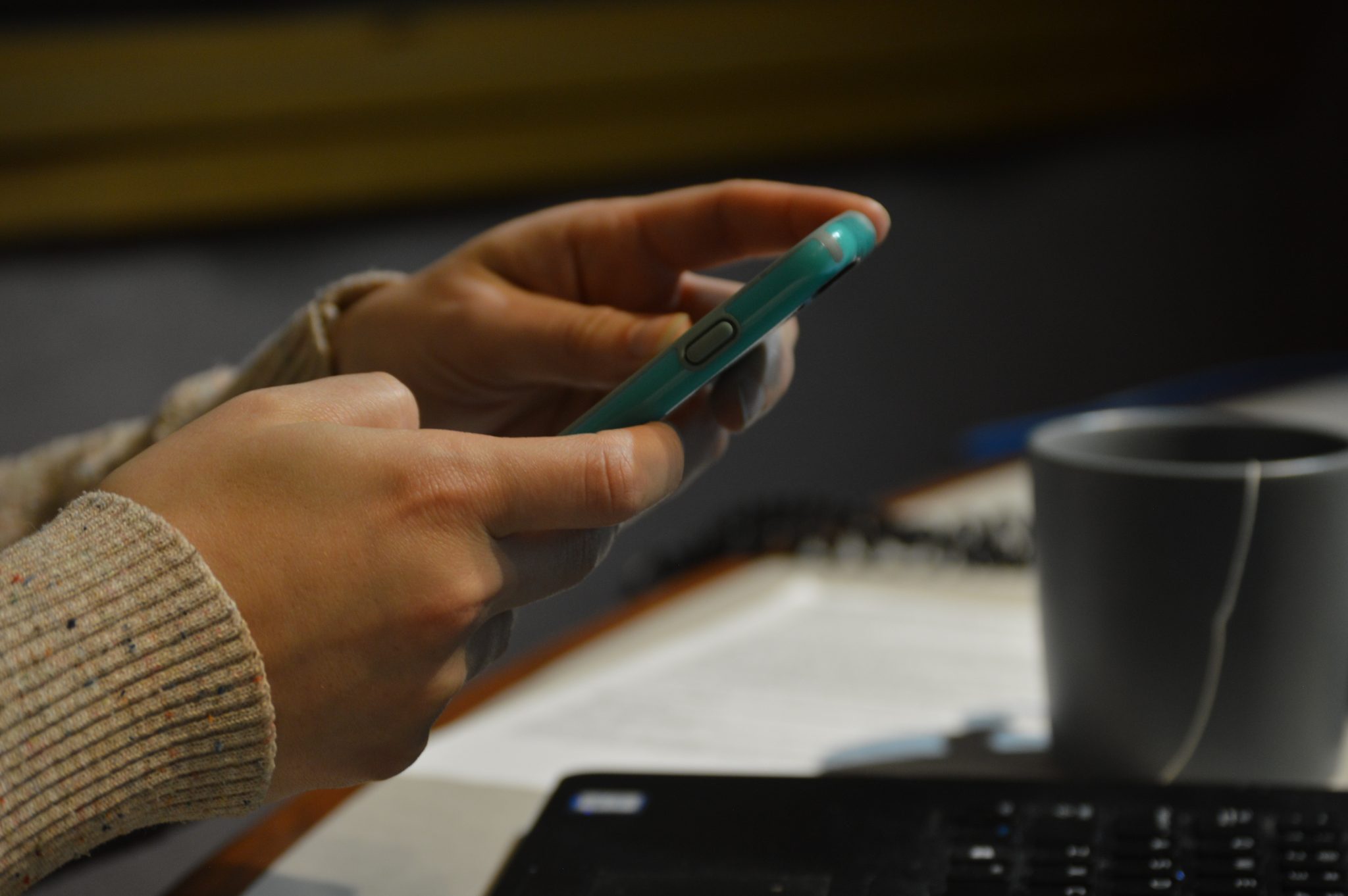How private is your data?
Public policy professor Shobita Parthasarathy talks about how our online activity can be used against us in a post-Roe world.

It’s happened to all of us. You’re talking with friends about a product, and then you open a social media app and there’s an ad for it. You’re faced with the reminder that in the digital age, our privacy isn’t very private at all. This is just one example of how our personal data continues to be used to monitor our daily lives in increasingly intimate ways.
Shobita Parthasarathy is a professor of public policy and director of the Science, Technology and Public Policy Program at the University of Michigan. She says audio assistance software like Apple’s Siri or Amazon’s Alexa contribute to this eerie phenomenon, but the surveillance doesn’t stop there.
“Any time you use the internet, any time you’re searching around for things, that information is being tracked by those companies. Invariably, it’s also being sold to third parties and it gets repackaged to give you targeted ads whether you like it or not.”
Related: Tracked and Traced: You are the product, thanks to surveillance capitalism
She says our reliance on technology makes it increasingly easier for companies to profit from seemingly insignificant details of our online activity.
“The more that our lives are entirely dictated by our electronic devices, the more the companies that provide those services have taken advantage [of this].”
The price of a free app
She says that if an app is seemingly free, we’re really paying for it with our data. And besides facilitating targeted ads, that data can also be used against us in a court of law.
“We’ve seen this with the Dobbs ruling on abortion just in the last few days, that things that were legal one day can become illegal the next day. So the behaviors that we think are totally legal and unproblematic can get reconsidered.”
When the Supreme Court overturned Roe v. Wade, period tracking apps went from being helpful to potentially harmful overnight. Nearly one-third of women in the U.S. use period tracking apps, and if a user becomes pregnant, their app data will reflect that. In states where abortion is criminalized, that data could have legal repercussions.
She says that even if an app claims to never have given data to law enforcement, that doesn’t mean they won’t in the future, and it’s often the third parties who give that information away anyway.
How to protect your data privacy
If you want to maintain your privacy, Parthasarathy’s advice is to immediately delete all information from your period tracking app, and then delete the app altogether. But if you want to pursue an abortion, it doesn’t end there.
“You might go through health care providers … or crisis pregnancy centers that are often set up by anti-abortion organizations. They collect data about you, and they might be able to essentially create probable cause so that law enforcement could come in and look at your search engines, look at your location data, look at your text messages, etc.”
Even anonymous browsing can lead to a false sense of security. Parthasarathy says that even if you don’t include your name or contact information in online forms, you’re still at risk of being tied to your data in other ways.
“Often, you are disclosing information about yourself that you don’t even realize.” —Shobita Parthasarathy
“These days, we’re talking about such enormous troves of data that in fact, [corporations and law enforcement] can triangulate data from lots of different sources to produce a pretty complete picture of you. Often, you are disclosing information about yourself that you don’t even realize.”
So how do we preserve our data privacy? She suggests looking into your web browser’s privacy policy, using encrypted messaging apps like Signal, saying no to as many HTTP cookies as you can, and most importantly, contacting your legislators to push for federal regulations. While some states like California do have consumer privacy acts, Michigan doesn’t currently have any data regulations in place.
“I feel like I’m often swimming against the tide,” she says of individual data protection methods. “I think those are really important, especially important if you’re in a precarious situation for some reason, but what we really need is law.”
Listen: Shobita Parthasarathy talks data privacy and surveillance capitalism.
Trusted, accurate, up-to-date.
WDET strives to make our journalism accessible to everyone. As a public media institution, we maintain our journalistic integrity through independent support from readers like you. If you value WDET as your source of news, music and conversation, please make a gift today.

